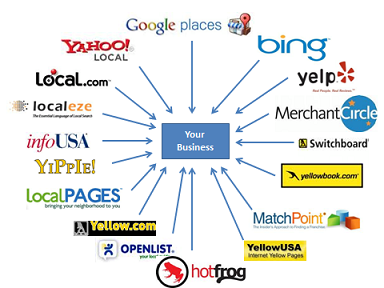
For businesses who want to rank in the Local landscape, there are many different aspects small business owners need to understand in order to be found online. There is an overwhelming amount of information to digest, no shortage of SEO experts to tell you what you need to be doing and minimal amount of time to do any of it.
Small business owners in particular should have a strong, responsive website, with unique, neighborhood relevant content, a social media presence and an ongoing digital strategy. This can be a tall task for any business owner, let alone those who do not fully understand Local SEO.
Every small business owner has done this at least once since their business has been open. They go to Google, type in their information and scan the Page 1 SERP. It’s natural. Business owners want to know how they show up in Google. What’s also natural is having the business website show up first (hopefully). What shows up next though? Facebook? Yelp? Something else? Whatever the results are, hopefully it is their own business.

So what should local business owners focus on if their budget is small and time is minimal? First, make sure your Google + Page is fully optimized, as that page has a huge impact in ranking in the Local Pack. Secondly, business owners should concentrate on Citations. What are citations you ask? Fair question. Citations are any mention of a business name, address, phone number and/or website even if there is no link included.
Links and citations are different. For clarification, a citation is when business information is referenced anywhere online and can include a link to the business website (though often doesn’t). A link, in contrast, is when a business/consumer/person adds text or an image that one can click on which takes that person to another page or file. This is a link. This is a citation:
Beardbrand
PO Box 8491
Spokane, WA 99203
These local listing websites where citations are placed, help Search Engines legitimize the business by providing the most important information for that business across various sites. All of the data gathered aids the Search Engines in compiling an accurate result for the business in local searches.
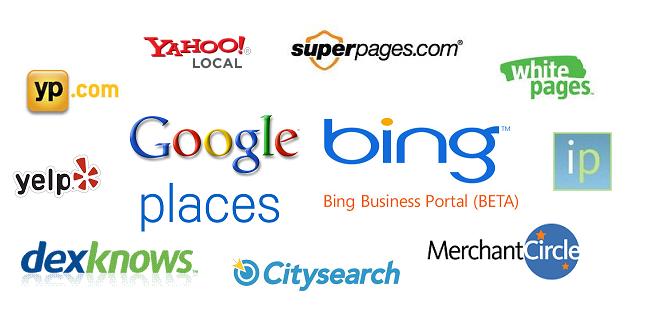
Websites such as Facebook, Twitter, Yelp, Superpages.com, Yellowpages.com, Manta and Hotfrog are examples of quality citations for a small business. Confirming all of the information is accurate and consistent across all of the websites is crucial. Clients and potential customers alike will be looking for information about the business, thus the information needs to be correct. Imagine the problems if customers or clients are unable to contact a business due to incorrect information in the SERPs.
The process of creating, maintaining, deleting and claiming citations is painstaking. Small business owners in particular need to manage the citations in order to control and display the correct business information, respond to and solicit feedback and rank in the Local SEO landscape. The Search Engines consider citations important sources of information and use the information to rank websites in the Local Map Packs in addition to the Organic section of the SERPs. With proper citation creation and management, business owners who Google their own business have the opportunity to dominate Page 1 of the SERP. Imagine seeing a business owning 10 of the 10 coveted spots on Page 1. Imagine taking 5 or 6 of the 10 spots for a coveted keyword while the competition rests uncomfortable below attempting to figure out how to rank.
WHY CITATIONS ARE IMPORTANT
Citations are a critical element in the way Google and Bing/Yahoo! rank websites in their algorithms. Businesses with a larger number of citations will most likely rank higher than businesses with minimal citations, all else equal. In addition, the Moz Local Ranking Factors site citations from high authority websites such as YellowPages.com, Superpages.com and Angieslist aid in the Search Engines categorizing your business information correctly.
Citations are important for all businesses but are even more important in smaller, less competitive business landscapes. Businesses like gutter repair, electrician and HVAC may not have websites and thus must rely on citations to provide information the Search Engines can rely upon.
There are 3 parts to citations which business owners should be aware of. First is creating citations. Second is cleaning up citations and lastly is monitoring the citations.
CREATING CITATIONS
The most common means which citations are displayed are in NAP (Name, Address, Phone Number) format. If a business’s NAP is consistent across a variety of websites, the Search Engines have more confidence in knowing the business listed is a real. Think about it this way, we’ve all seen businesses with fake addresses listed in the Map Pack, especially after the Pigeon update. If more businesses had a plethora of citations on websites like their local Chamber of Commerce, Better Business Bureau, Yellowpages.com, Superpages. Manta, Facebook and Angieslist then Google would trust the information of other businesses more and they should outrank the business with the fake address.
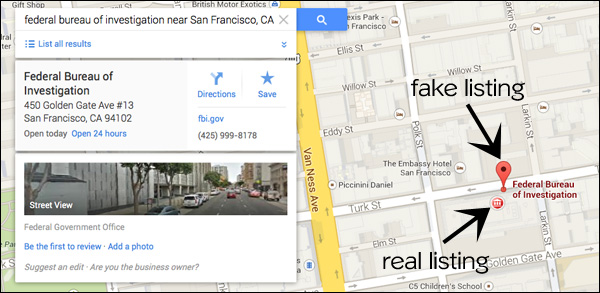
For this reason, it is critical that business information is consistent across the internet ecosystem. There are several factors which go into building quality citations. Again, not every citation needs to be in the NAP format but it is the most common when it comes to building on local directories.
Google places great importance on consistency in citations, thus business owners should as well. Here are some important factors to keep in mind when building citations:
- Name
The name of the small business is one of the most important factors for ranking well in the Local SEO landscape. The name must remain 100% consistent across all data sources on the web. This will help the Search Engines establish trust in your business’s existence and aid your business location.
According to Google, “Your name should reflect your business’ real-world name, as used consistently on your storefront, website, stationary, and as known to customers.” This means a small business should not list their business as “Jerry’s Pro Shop” in one citation and “Jerry’s Hockey Pro Shop” or “Jerry’s Hockey Shop” in another. The reason being, Google and other Search Engines may get confused when indexing the listing and treat them as two separate businesses. The listings need to be consistent.
A few other items of note from the Google Quality Guidelines include:
- The business name cannot include Marketing Taglines – TD Bank, America’s Most Convenient Bank
- Fully Capitalized Words – BURGER KING
- Phone numbers or websites
- Location Information – Macy’s Union Square, Holiday Inn (I-90 at Exit 7)
There is a load of good information straight from Google’s mouth so be sure to read through Googles Quality Guidelines if there are any additional questions.
- Address
The address of any business is also extremely important in Local SEO. Again, the address needs to be consistent across all data sources. Any discrepancy in the listing of an address will result in the Search Engines considering the different addresses as differing businesses. The result will be lower confidence and trust in your listing and, ultimately, lower rankings for that business.
Here are a few examples of how a business should NOT be listed:
Real Business Address
- 123 Main Street, Chicago, IL 60639, 630-123-4567
Business Address Listed on AngiesList
- 123 Main St., Chicago, IL 60639, 630-123-4567
Business Address Listed on YellowPages.com
- 123 Main, Chicago, IL 60639-145, 630-123-4567
Notice the differences in the address. One is listed as “Street”, one is listed, “St.” and the last doesn’t have anything. The Search Engines are getting better at understanding that “St.” and “Street” are the same address but any business owner should strive for 100% consistency. It is not as important to make sure “St.” and “Street” are consistent throughout as it is to be sure the address is consistently the same. For instance, if a business moved from “123 Main St” to “234 Main St”, it is more important to get that address correct rather than worry about if the citation reports “St” versus “Street”.
- Phone Number
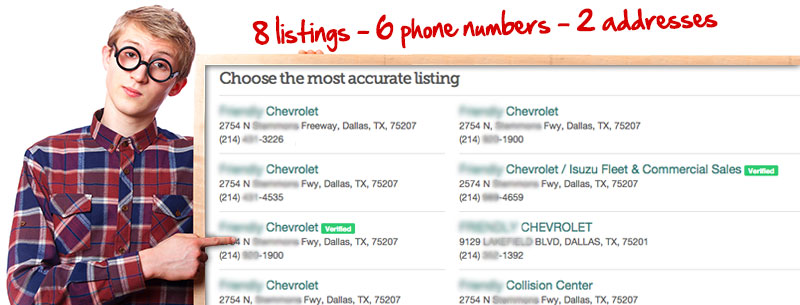
Let me know if this is redundant…The phone number must be the same throughout the ecosystem of the web. If Search Engines locate differing phone numbers for a business location, they will treat the numbers as separate locations. Things can get tricky for business owners who have multiple phone lines, multiple business partners in the same building using different phone numbers and call tracking numbers. I don’t need to put any examples for this as these are obvious.
- Website
Not every website will allow businesses to place their website on the page, so when a citation source does, it’s a great idea to do so whether it gives a link or not. The link doesn’t need to be as specific as the other information as the Search Engines don’t put as much weight on this factor. The Search Engines are generally indifferent as “www.example.com” and “example.com” lead to the same website.
WHERE TO CREATE AWESOME CITATIONS
There are numerous places where a business owner can build citations for their business. A few examples of the highest quality citations to build for a small business will be:
- Data Aggregators
-
- Infogroup
- Localeze
- Acxiom
- Factual
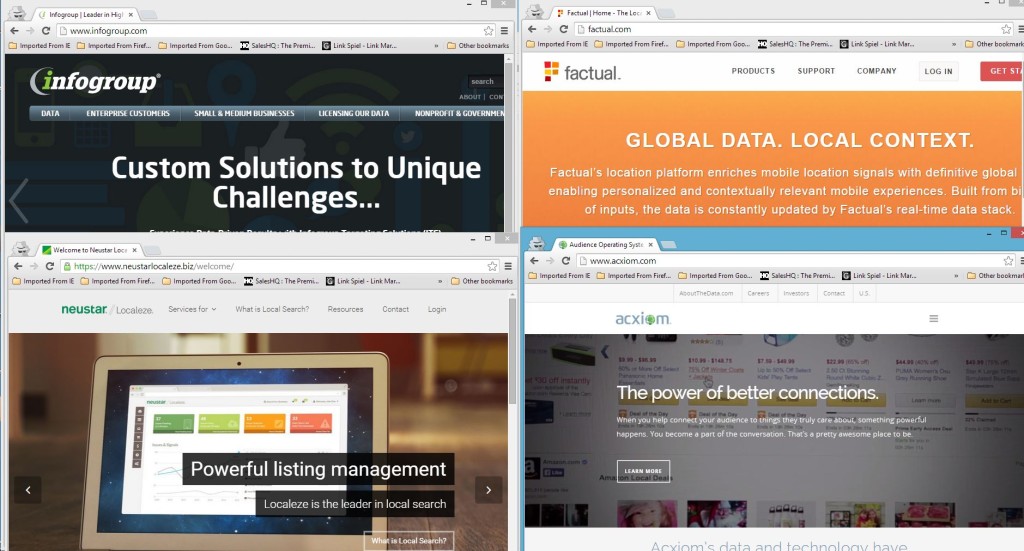
- Directories
- AngiesList
- CitySearch
- InsiderPages
- SuperPages
- YellowPages
- Manta
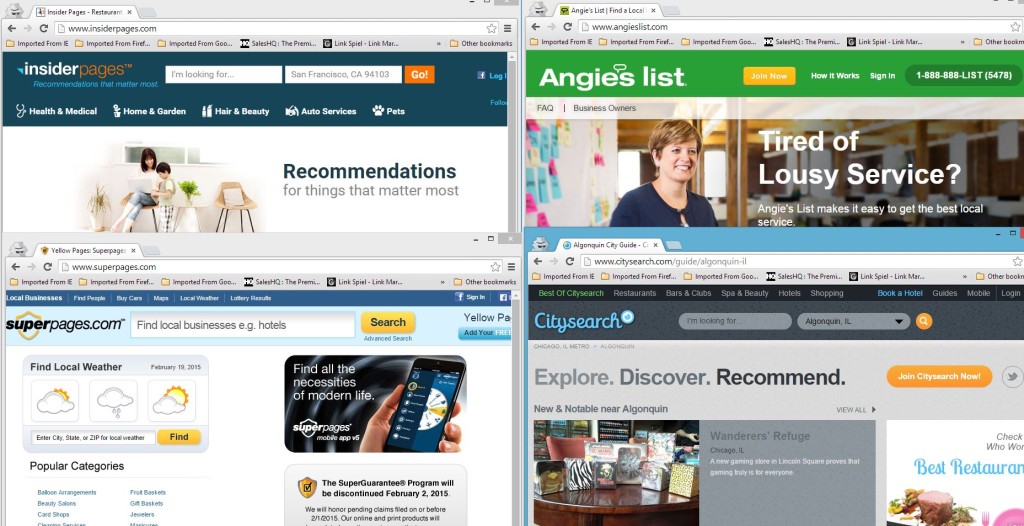
- Blogs
- Popular Blogs related to your company
- Blogs related to your niche
- Blogs related to your industry
In addition, citations and links from websites similar to the ones below can radically improve local SEO rankings. These citations should be from websites which are from a:
- Relevant Business Niche
- Business Associations
- Trade Associations
- Directories
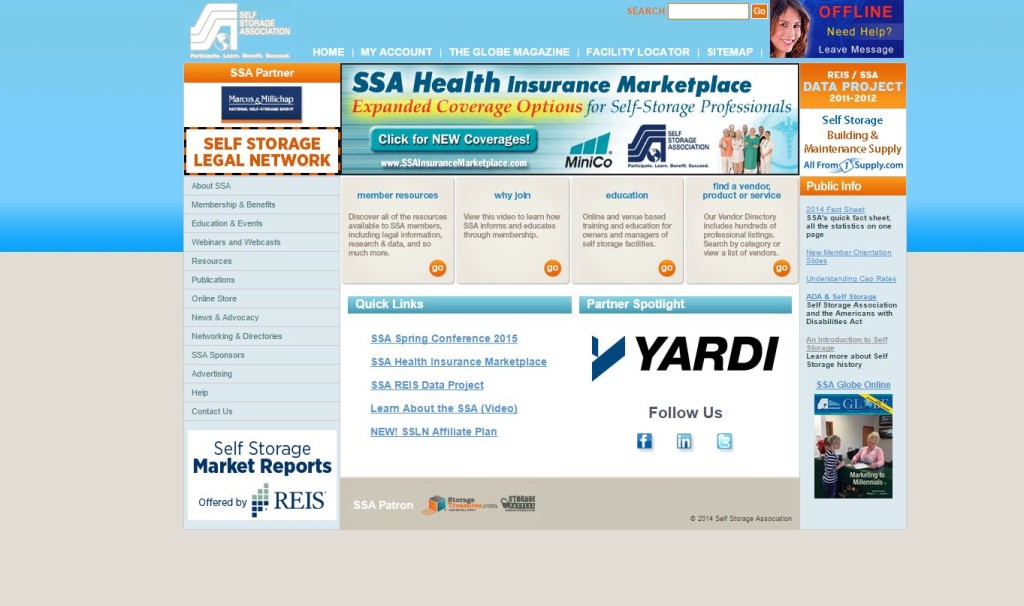
- Relevant Local Location
- Better Business Bureau
- Chamber of Commerce
- Rotary Club
- Little League Team
- Chicago.com/places
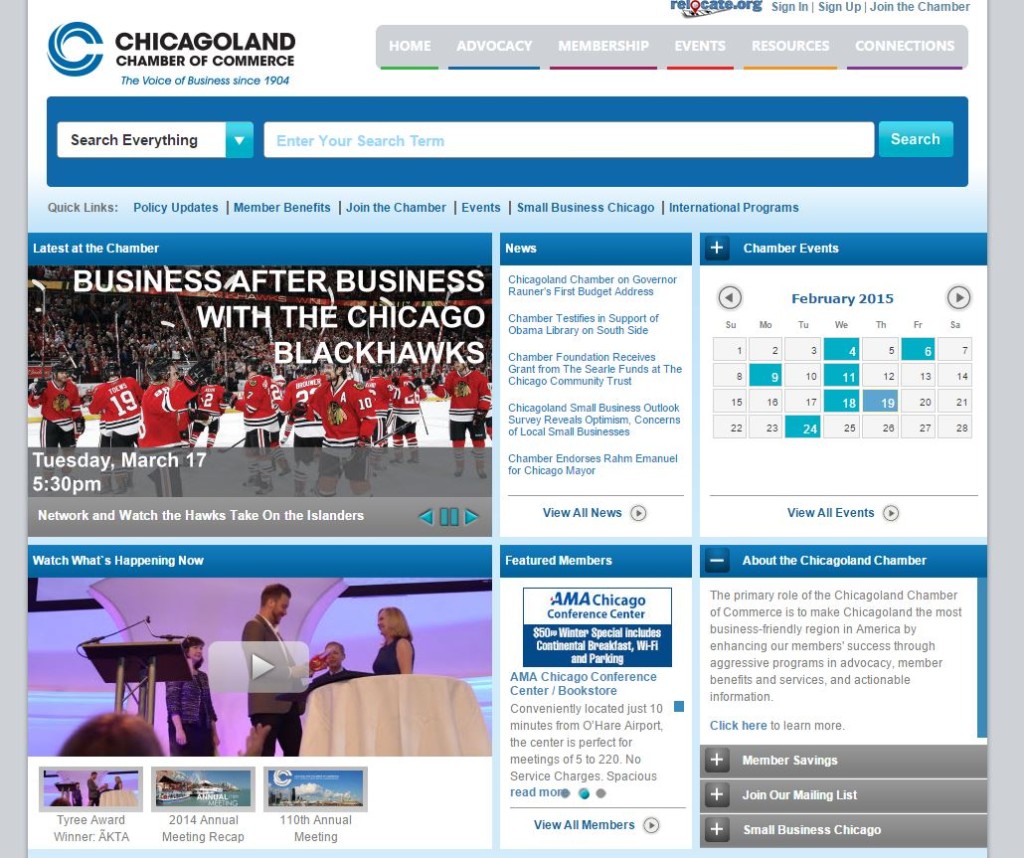
- Authoritative Website
- Yelp
- YP.com
- SuperPages
- Online Newspapers
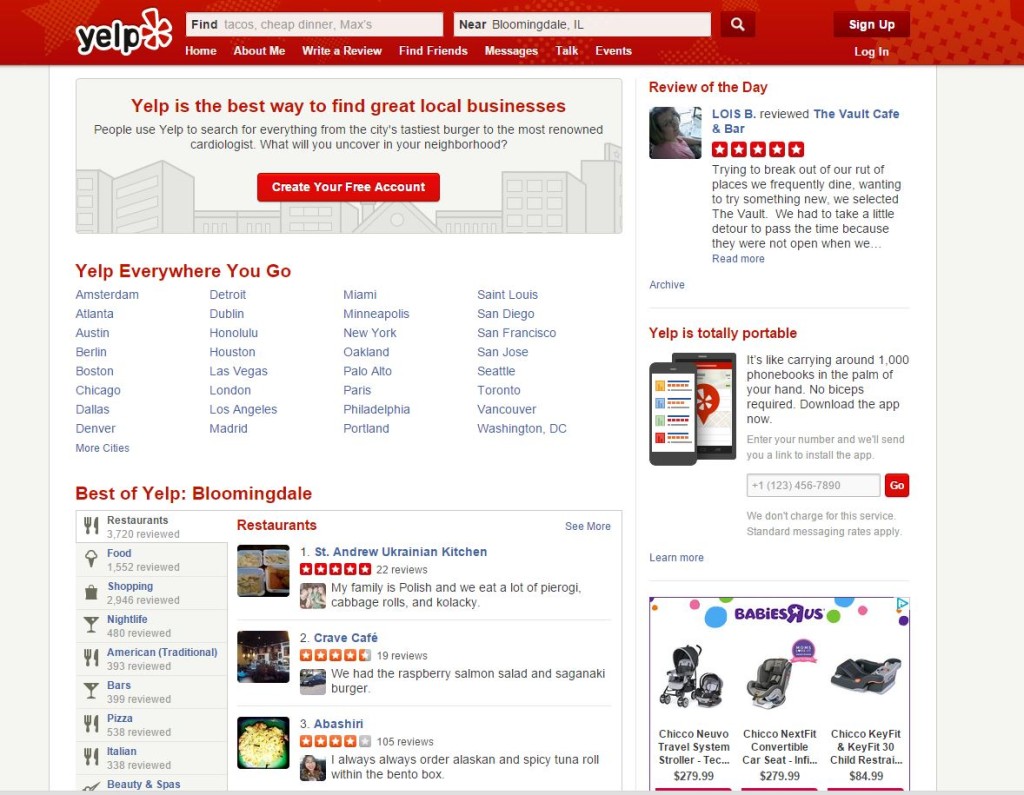
For an exhaustive list of places to build Local Citations, refer to Phil Rozek’s post. Moz also has an awesome list of the best citations by category and by city.
COMMON CITATION PROBLEMS
While citations are essential for local businesses, there are several problems business owners will run into when creating citations which is why business owners should monitor their citations. Three of the most common problems among citations are:
- Old NAP information being displayed
- Having old NAP information typically happens when a business changes its address or phone number. This is the most frustrating kind of issue to have simply because if a business changes its information, it needs to be corrected quickly in order to not mislead customers. The problem is, this takes time to get corrected. The business information can be correct on one website but incorrect on the other, simply based on how often the website updates its content. Some websites update immediately while others take months. Frustrating, right!? Focus on correcting the information in the big data feeders and directories. This information will eventually filter down to the smaller, less important directories as well.
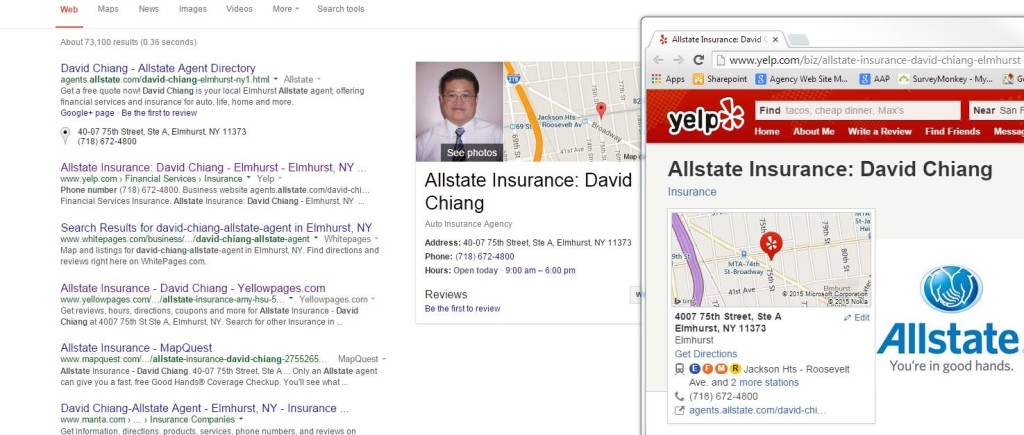
- Typos and Incorrect NAP
- This is similar to having old NAP information display. Try to make sure the business information is correct when it is submitted and try not to change addresses or phone numbers often. Obviously, sometimes this cant be avoided but if it is avoidable, do so. Having call tracking numbers is also a poor decision from an SEO standpoint simply because Google wont recognize which phone number is real.
- Duplicate Information
- It is a good idea to remove duplicate listings and information from any citation source a business is listed on. There is no need to have duplicate information listed on the same website as it can often feature old or incorrect information which could easily spread wrong information through the ecosystem.
Whitespark has an awesome list of Citation Building Best Practices you should check out. Again, it was written by Phil.
Well, there you have it. The Who, What, Why and How of citations. Did I miss anything?